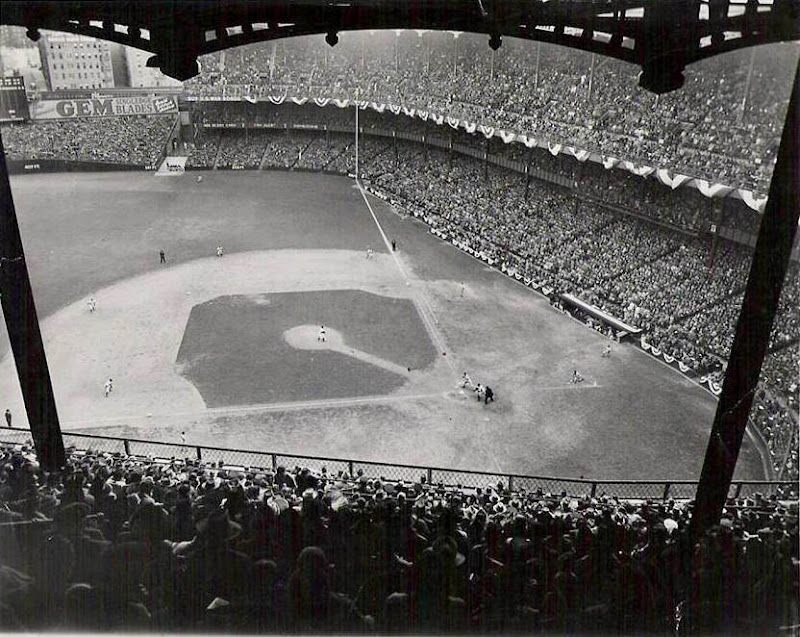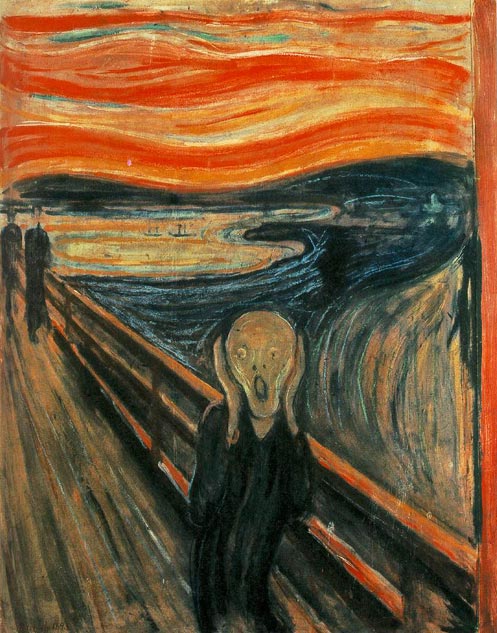
My argument has always been that I love playing sports. I'm just not too keen on watching sports. I have tons of pleasant memories playing basketball all throughout grade school. I've popped vessels in my forearms playing volleyball. I'm pretty bad at soccer but have collected my fair share of grass stains from playing it. I can rally in tennis and have a decent backhand. I ran the 100m in track and completed a marathon a couple years back. I even had a really decent repertoire of tricks up my sleeve in handball at one point in my prepubescent life. So it's not like sports aren't my thing, but you might as well be speaking Klingon to me when you start spitting out statistics at a mile a minute.
"Wait -- who got traded to where and who and the what now?"
But then it recently occurred to me that the people who have the time and energy to memorize statistics, names, and dates are the ones who actually care about the sport enough to do so. Which brought me to a jarring realization: I didn't care enough about any sports! Rather, there wasn't anything about sports in modern day that tempted me to care. We live in an age of constant stimulus and short attention spans. People like fast-paced things. Flashy things. Scandalous things. Me? Not so much. Maybe that's why Tiger Woods' infidelity dominated headlines for months and months. And maybe that's why you can never find a seat at Yard House each time the Lakers play. After being sprinkled with nacho particles and discovering beer stains on my clothing enough times, I decided that maybe this wasn't my thing.

Until now, that is.
I wouldn't say that baseball was a recent discovery. Nor was it so deeply embedded into my childhood. Although, I do remember the thrill of eagerly waiting my turn to bat behind the cage during recess. And I do remember planning to wear jeans the night before going to school just in case I needed to slide into base. I remember baseball being fun. These memories lay dormant in my mind until Ken Burns' serial documentary Baseball woke them up with a sounding alarm. (And, to his credit, my boyfriend Felipe was the one who helped pull the switch.)
Almost an antithesis of what people expect out of sports these days, baseball is not all lights and sounds. If anything, the crack of the ball against the bat might be the only thing that breaks the buzzing silence of a slow summer day at the stadium (depending on the day and who's playing, of course). Games can run long, and the chances of witnessing a fatality or injury are a lot lower than if you were watching a more high-contact sport. But if you know your history and meet the right people, you'll see that baseball is one of the greatest games ever played.
 For instance, baseball has thrived and survived through almost every major American war. Soldiers played in their encampments during the Civil War. Players like Christy Mathewson were drafted for the First World War and returned to the game afterward. All-Star games, in which people could vote for which players played, were the result of an effort to bring out more fans during the Great Depression. And practically anybody could play. The earliest teams were made up of merchant groups - barbers, miners, shopkeepers, firemen. I say "practically" because blacks in America were not allowed to play in the major leagues until 1947 (when Jackie Robinson got signed to the Brooklyn Dodgers), but that didn't stop them from forming their own league in which to showcase their best players.
For instance, baseball has thrived and survived through almost every major American war. Soldiers played in their encampments during the Civil War. Players like Christy Mathewson were drafted for the First World War and returned to the game afterward. All-Star games, in which people could vote for which players played, were the result of an effort to bring out more fans during the Great Depression. And practically anybody could play. The earliest teams were made up of merchant groups - barbers, miners, shopkeepers, firemen. I say "practically" because blacks in America were not allowed to play in the major leagues until 1947 (when Jackie Robinson got signed to the Brooklyn Dodgers), but that didn't stop them from forming their own league in which to showcase their best players.The great Ty Cobb came from rough beginnings and a tough family life. His mother murdered his father when he was younger. Baseball was an anchor for him in his personal life. Babe Ruth was just a kid abandoned by his parents in boarding school when he first began to play. He then proceeded to become the stuff of legend. Baseball had the power to craft a Somebody out of a Nobody.
Baseball was and is more than just a sport. Its history is fused with American history, so much so that it's impossible to talk about one without mentioning the other. During wars, it was an escape into normalcy if even for a brief second. For American families, it was something to do together as a unit. For hopeful athletes, it was a way out of the slums. It captured the "can-do" attitude of the American people. Teams inspired hope in their local fan base, who came out to cheer them on, rain or shine. It gave gamblers something to gamble for; journalists something to write about; and kids heroes to look up to. It bridged the gap between young and old, poor and rich, black and white, men and women, and so much more.
As you can see, baseball brings out the history nerd and old soul in me. Hundreds of years may have passed since the first game of baseball was ever played, but the spirit of baseball is something that has remained timeless. That's what makes it so compelling. That's what makes it so unique in my mind. In my very biased opinion, baseball is the only sport in all 23 years of my life that has made me stop and take a look around. Baseball extended its invitation to me to care, and I willingly accepted.
Felipe tells me, "Once a baseball fan, always a baseball fan." Now that I've crossed the threshold, I suppose I'm set for life. Stars and pinstripes forever.







